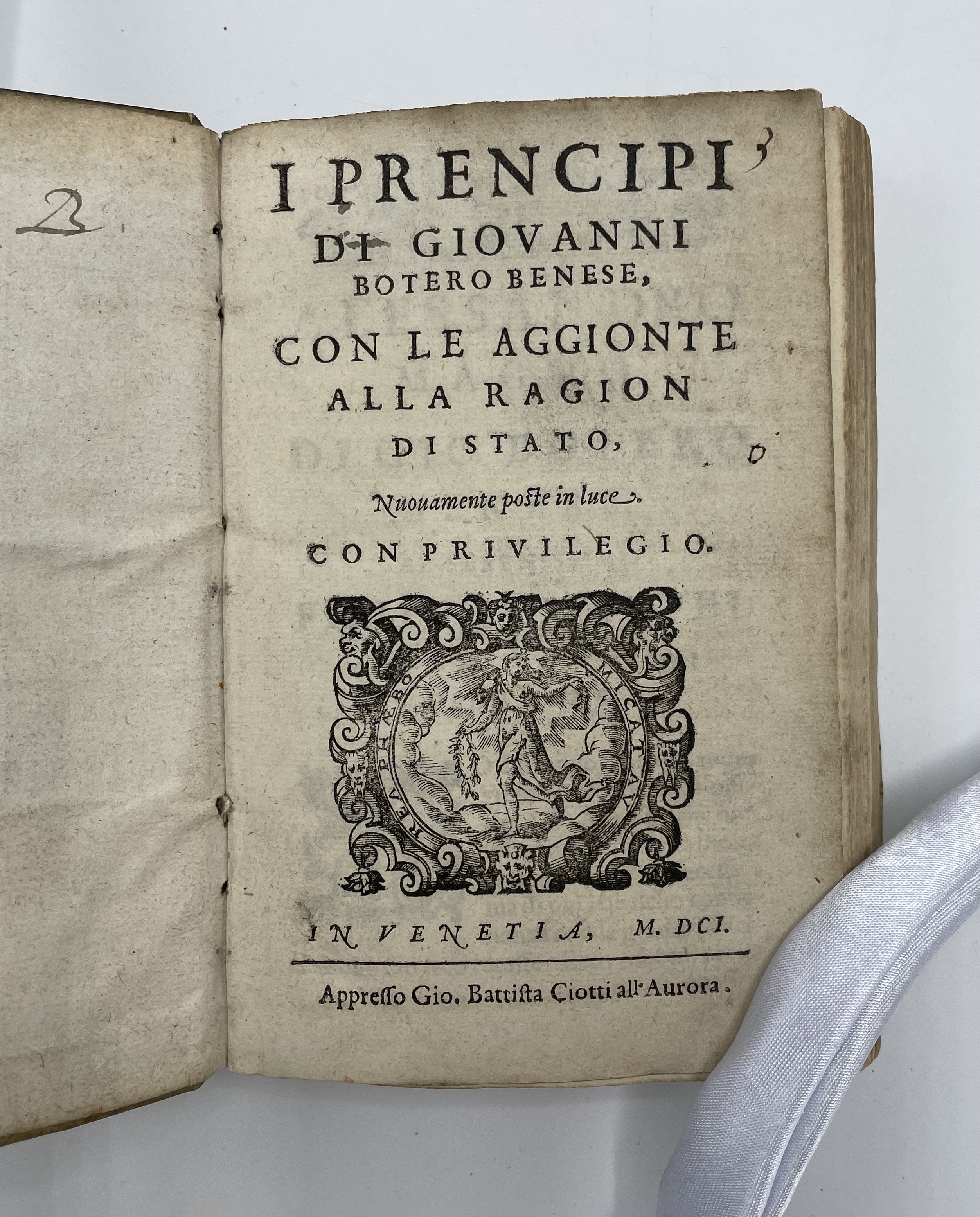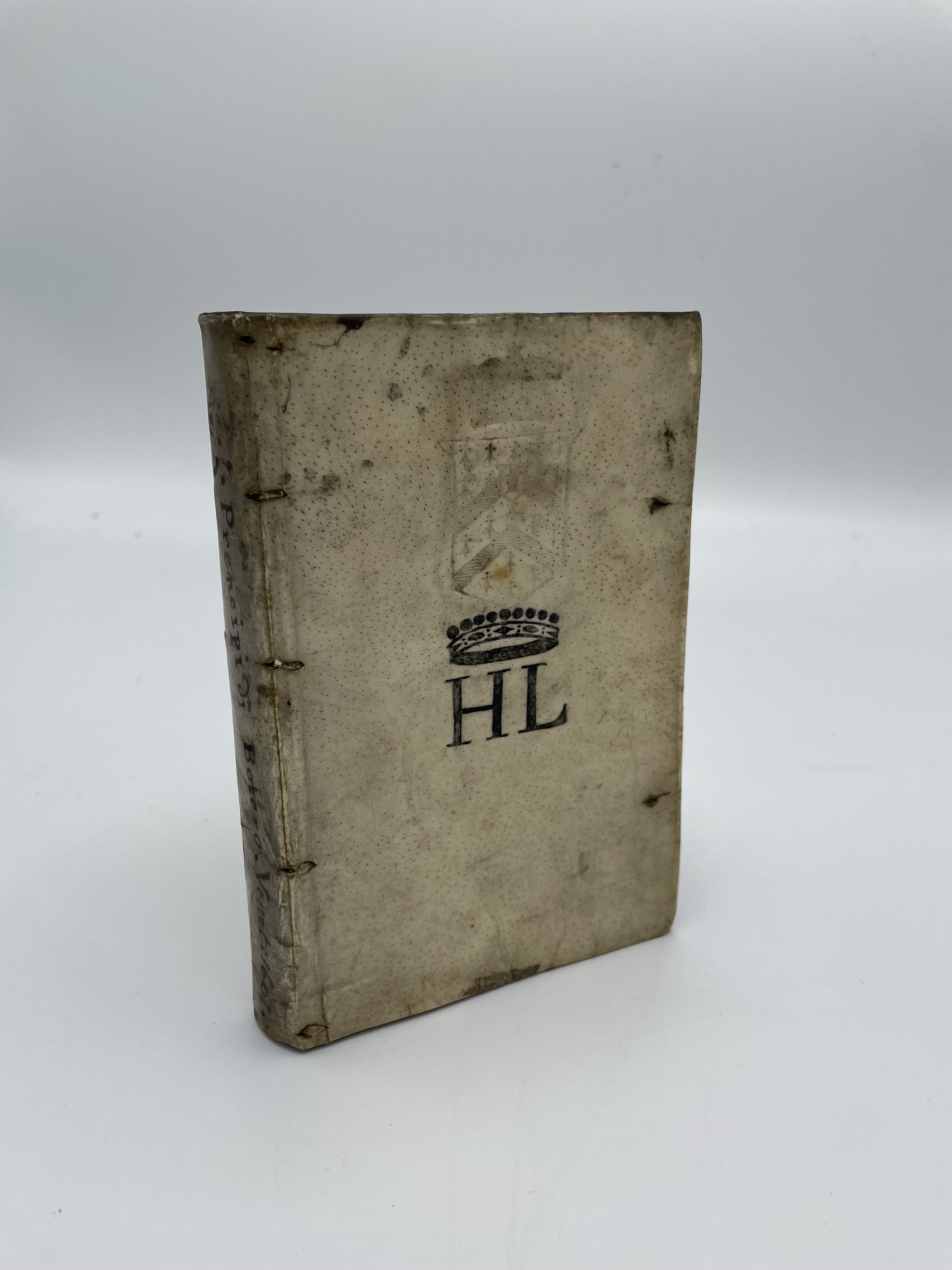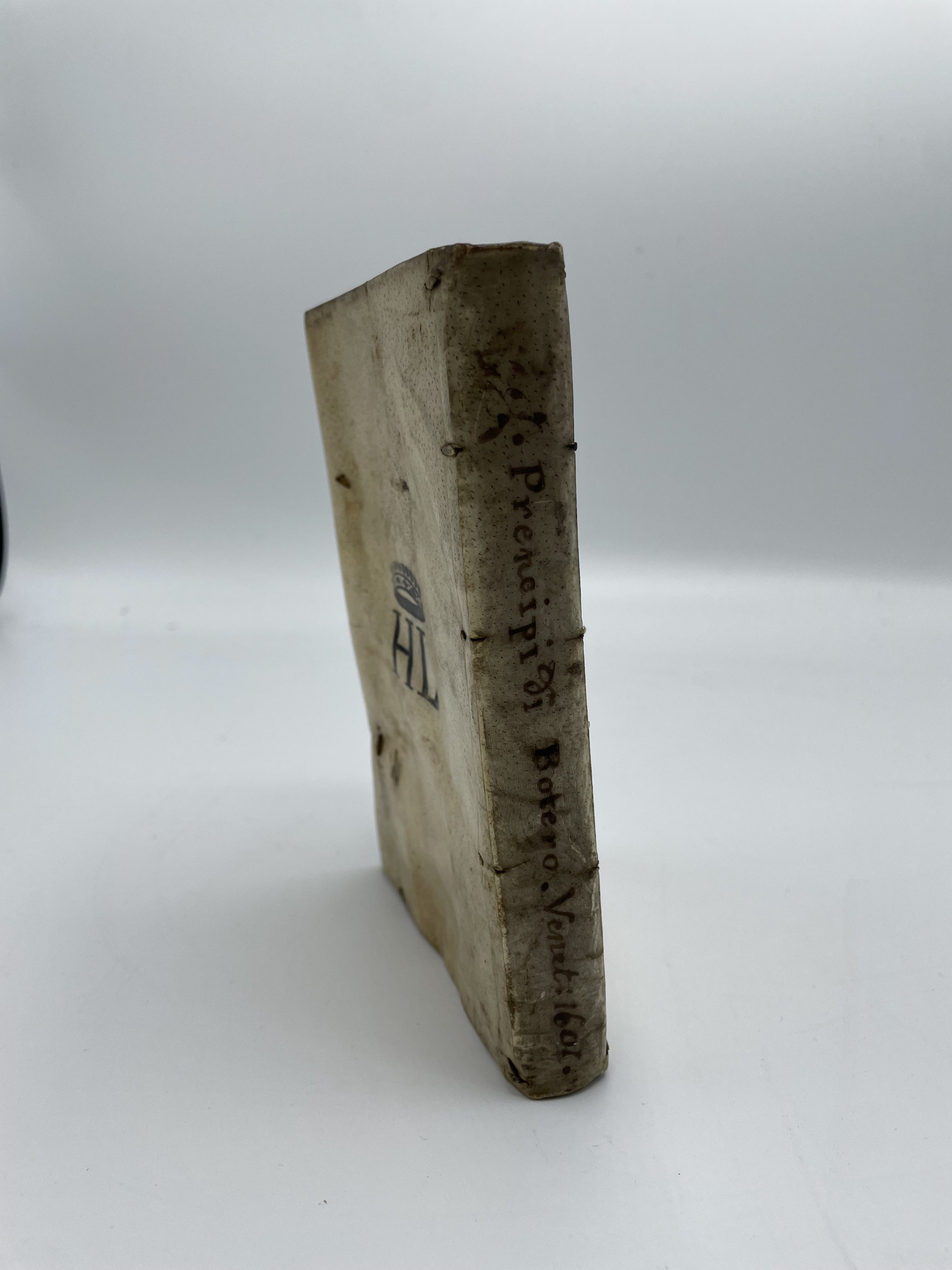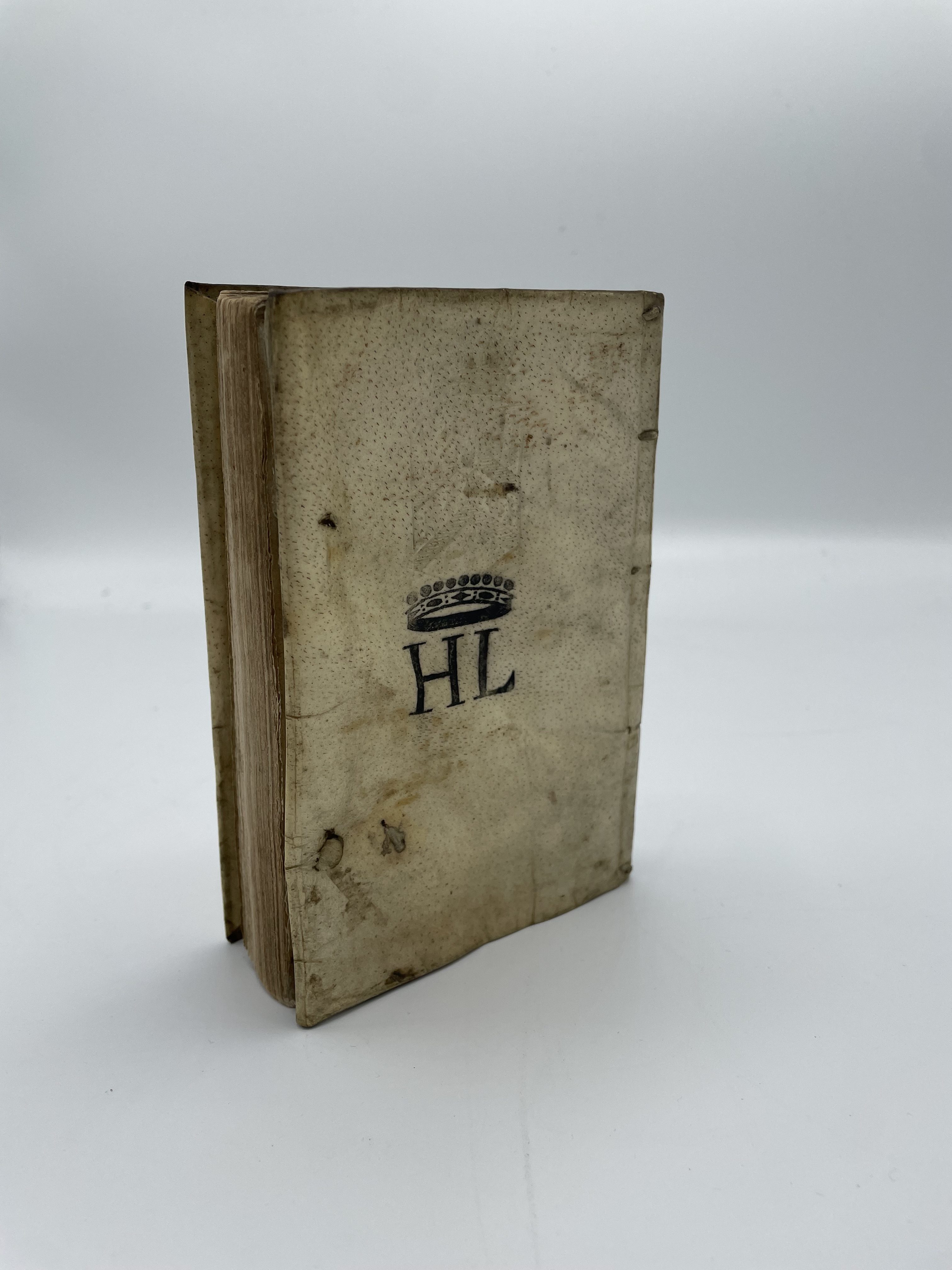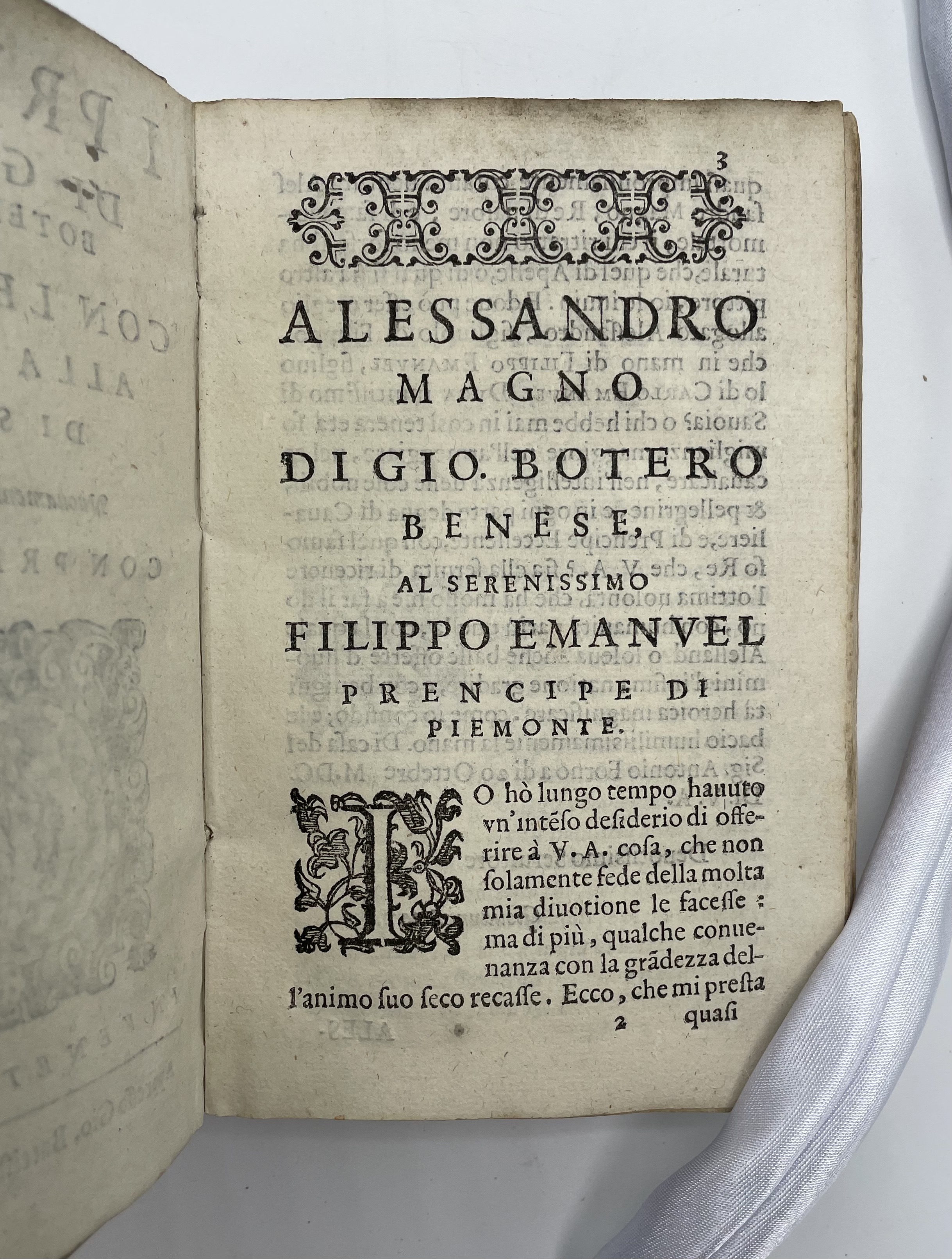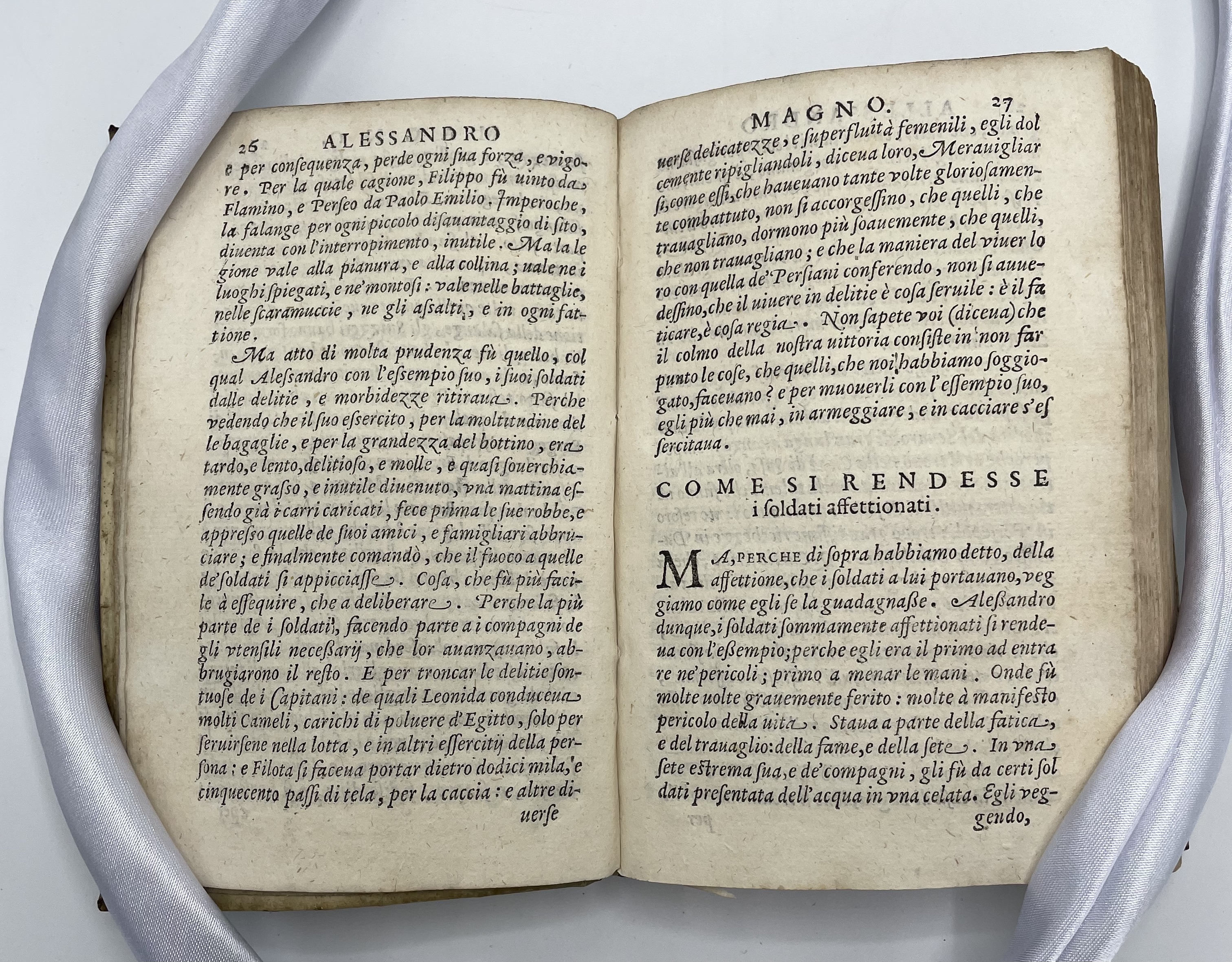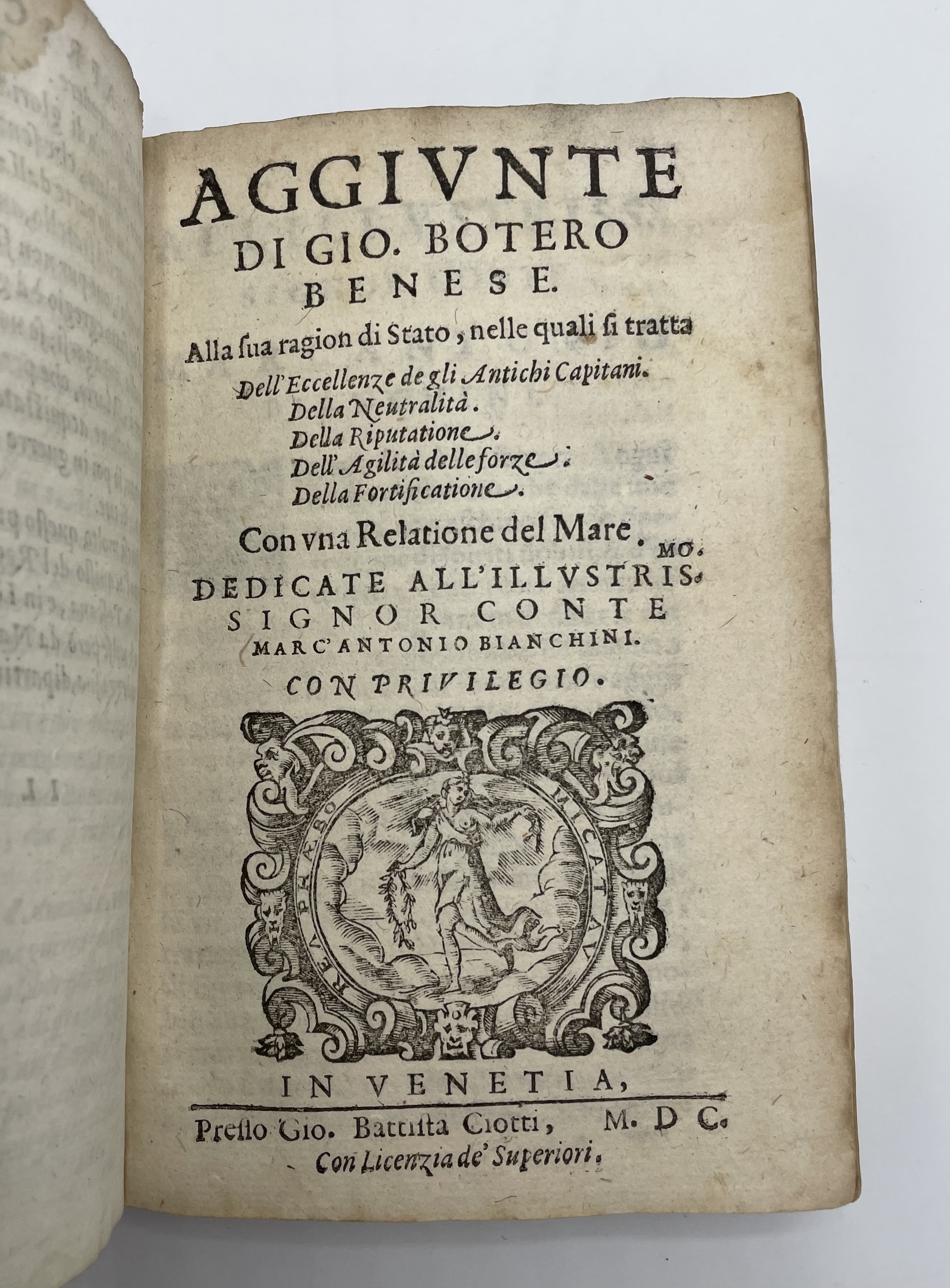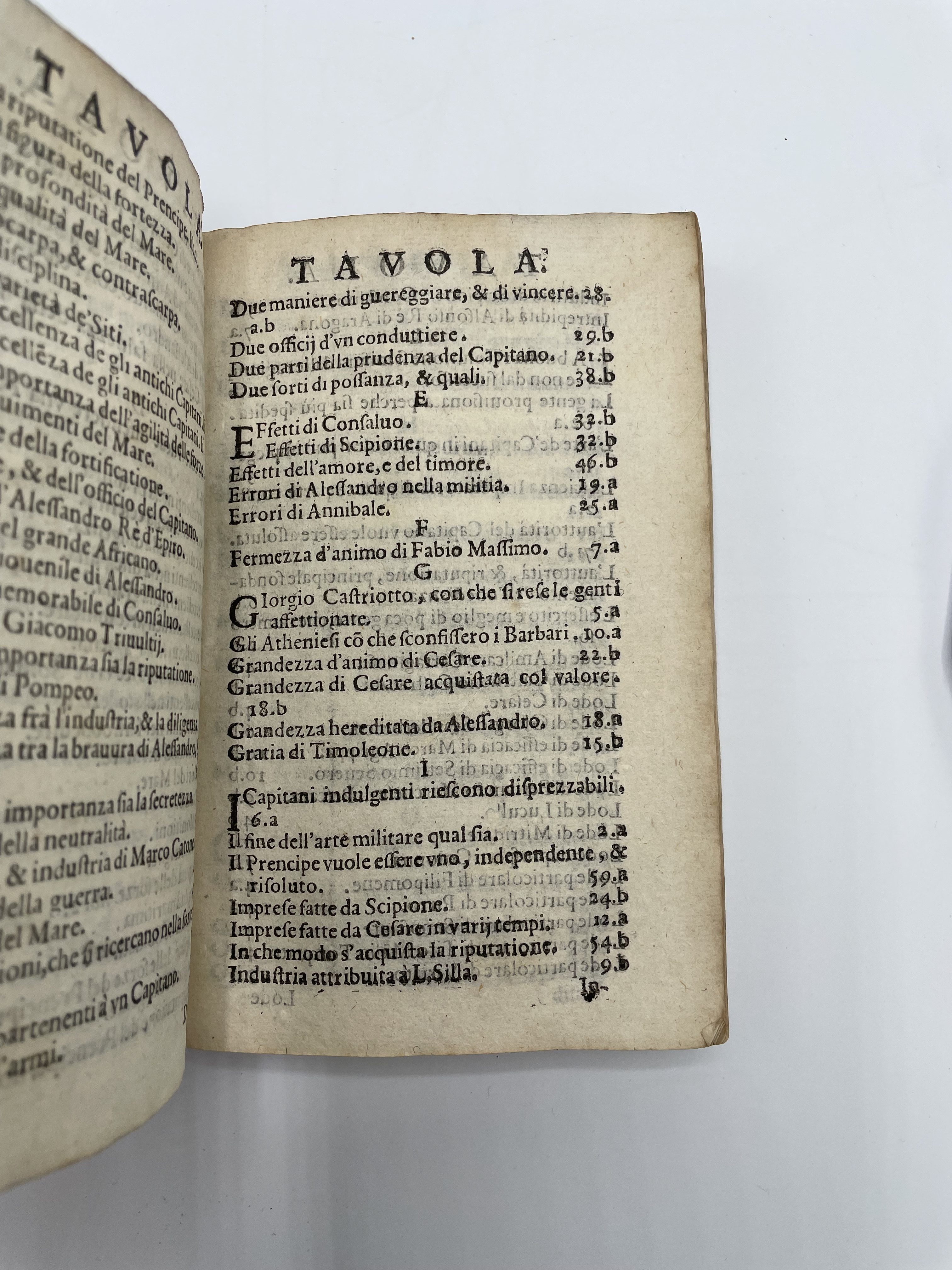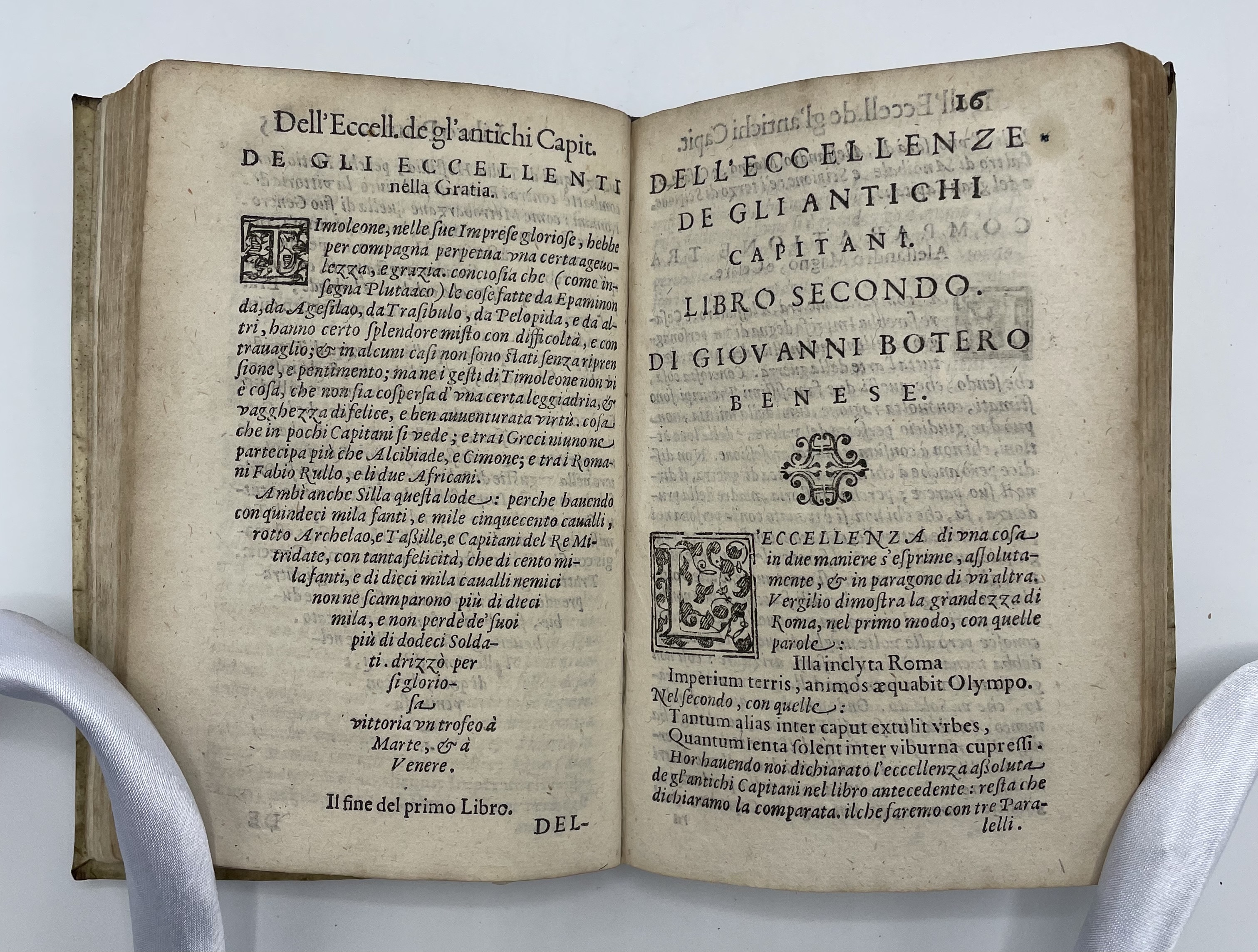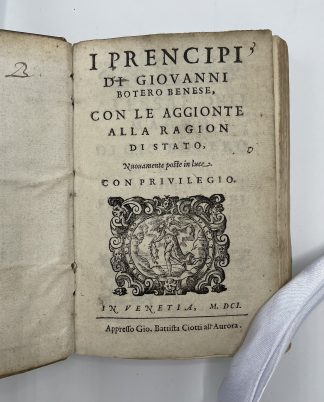BOTERO, GIOVANNI.
THE EDUCATION OF THE RULER
(1) I Prencipi’ di Giovanni Botero Benese, con le aggionte alla ragion di stato nuovamente poste in luce. [with] (2) Aggiunte di Gio[vanni] Botero Benese alla sua ragion di stato (and) Relatione del Mare
Venice: presso Giovanni Battista Ciotti, (1) 1601, (2) 1600£1,250.00
8vo. (1) pp. 127, a few misnumbered. Italic letter, little Roman. Printer’s woodcut device to t-p, woodcut initials and ornaments. Printing tear to lower outer corner of C6 (affecting first or last letters on six lines), light water-stain to head of several gatherings, some yellowing. (2) ff. (viii) 96. Italic letter, little Roman. Two parts in one, separate t-p with printer’s woodcut device to each, woodcut initials and large decorative tailpiece. Age yellowed, water stain to final ll., a few uncut at head.
In contemporary limp vellum, ink lettering to spine, pastedowns somewhat frayed, arms of William Bagot, 1st Baron Bagot (1728-1798), and monogram (‘HL’) and Viscount’s coronet of Henry Yelverton, 1st Viscount de Longueville (1664-1704), stamped (in blind and black respectively) on front and back covers, bookplate of Robert Hayhurst to front pastedown, lacking ties, ms. ‘B’ on fly, slight soiling to fore-edges.
Giovanni Botero (1544–1617) was an Italian political theorist from Piedmont. He studied at the Roman College, where he was classmates with Robert Bellarmine; in 1582 he became secretary to Cardinal Carlo Borromeo. In 1599 he joined the court of Carlo Emanuele I, duke of Savoy, in Turin, acting as tutor to the duke’s three eldest sons: Filippo Emanuele, Vittorio Amedeo, and Emanuele Filiberto. Botero wrote ‘I Prencipi’ (The Princes) – a set of three historical portraits of Alexander the Great, Julius Caesar, and Scipio Africanus – as an aid-text for the moral education of his three students. Each mini biography is conceived of as a ‘noble mirror’ (‘nobilissimo specchio’) which the young prince may use to pleasantly arrange ‘not his face or hair, but his judgement and soul’.
Second edition of Botero’s ‘Aggiunte alla Ragion di Stato’ (‘Additions to the Reason of State’) containing extensive additions and expansions to his major ‘Della ragion di stato’ (1589), which had become an international bestseller. Fifteen Italian editions appeared before 1700, six Spanish by 1606, a French in 1599, three Latin editions between 1602 and 1666. (Robert Birely). The ‘Additions’ begin with a section entitled ‘On the Virtues of the Ancient Captains’, which considers the individual merits of ancient military commanders including Themistocles, Pompey, and Hannibal. Short essays on topics such as reputation, military agility and fortification follow, and the work concludes with a short treatise on oceanography. Aside from this last treatise, the essays in the Additions are all cast in the mirror-for-princes mould and are written for a courtly audience.
Henry Yelverton, 1st Viscount de Longueville (1664 -1704) inherited the title of 15th Baron Grey of Ruthin in 1679. He supported William of Orange during his invasion in 1688, and in 1690 was created Viscount de Longueville. He amassed a substantial library which remained in his family until dispersals in the late 18th century.
William Bagot, 1st Baron Bagot (1728 – 1798) was M.P. for Stafford from 1754 to 1780. He was created Baron Bagot 17 October 1780. “We do not know the extent of his library, but in his will he expressed the wish that his books (together with his coins, medals, marbles, furniture and pictures) should not be sold but remain with his estate, inherited by his son William, who succeeded as 2nd Baron. The family library, at Blithfield Hall, Staffordshire was dispersed by Sotheby’s, 26 November 1945.” (David Pearson)
(1) USTC 4034571. Adams 2550. (2) USTC 816589. EDIT16 CNCE 39668. Not in BM STC II C16. Robert Birely, “Introduction” in Botero: The Reason Of State (Cambridge: CUP, 2017), pp. xiv - xxxviIn stock


